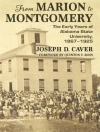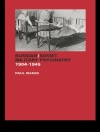Praise for the 2005 Edition: ’A passionate and highly readable account of the current tragedy that combines intimate knowledge of the region’s history, politics, and sociology with a telling cynicism about the polite but ineffectual diplomatic efforts to end it. It is the best account available of the Darfur crisis.’-Foreign Affairs ’Does the conflict in Darfur, however bloody, qualify as genocide? Or does the application of the word ‛genocide’ to Darfur make it harder to understand this conflict in its awful peculiarity? Is it possible that applying a generic label to Darfurian violence makes the task of stopping it harder? Or is questioning the label simply insensitive, implying that whatever has happened in Darfur isn’t horrible enough to justify a claim on the world’s conscience, and thus invite inaction or even the dismissal of Darfur altogether? These questions lie at the heart of a much-needed new book by Gerard Prunier. In this book, Prunier casts aside labels and lays bare the anatomy of the Darfur crisis, drawing on a mixture of history and journalism to produce the most important book of the year on any African subject.’-Salon.com ’The emergency in Darfur in western Sudan is far from over, as Gérard Prunier points out in this comprehensive and authoritative book. . . . He concisely covers the history, the conflicts, and the players. . . . This book is essential for anyone wanting to learn about this complex conflict.’-Library Journal ’If Darfuris are Muslim, what is their quarrel with the Islamic government in Khartoum? If they and the janjaweed-‛evil horsemen’-driving them from their homes are both black, how can it be Arab versus African? If the Sudanese government is making peace with the south, why would it be risking that by waging war in the west? Above all, is it genocide? Gérard Prunier has the answers. An ethnographer and renowned Africa analyst, he turns on the evasions of Khartoum the uncompromising eye that dissected Hutu power excuses for the Rwanda genocide a decade ago.’-The Guardian Darfur: A 21st Century Genocide explains what lies behind the conflict in Western Sudan, how it came about, why it is should not be oversimplified, and why it is so relevant to the future of Africa. As the world watches, governments decide if, when, and how to intervene, and international organizations struggle to distribute aid, Gérard Prunier’s book provide crucial assistance. The third edition features a new chapter covering events through mid-2008.
Innehållsförteckning
CONTENTS
Prefaceand Acknowledgementspagevii
Glossaryof Arabic Termsxii
Abbreviationsxix
Mapxxii
1. Independent Darfur: Land, People, History 1
Theeconomyandthelieoftheland1
Population:acomplexethnicmosaic4
Theindependent Darfur Sultanate8
Umm Kwakiyya, thetimeofthebandits15
Ali Dinarand Darfur’slastindependentyears(1898/1916)20
2. Darfur and Khartoum (1916/1985): An Unhappy
Relationship 25
Colonialbenignneglect:romanticismandunderdevelopment25
Onthemarginsofhistory:Darfurand Sudanesenationalism34
Reachingforthe Centre:thefrustrationsofdemocratic
politicsin Darfur36
The Chadian-Libyanfactor:afundamentalelementof
destabilization42
Frommaladministrationtofamine:the1984catastrophe47
3. From Marginalization to Revolt: Manipulated
’Arabism’ and ’Racial’ Anarchy (1985/2003) 54
Consequencesofthe1984famine54
Khartoum’s’democratic’politicsandthe Chadianconflict58
Libya’s’victory’in Chad, anew Darfurfamineandthe Daud
Boladinsurrection68
Centreversus Periphery:Darfurinaglobal Sudaneseperspective76
4. Fear at the Centre: From Counter-Insurgency
to Quasi-Genocide (2003/2005) 81
Centreversus Centre:the Islamists’internalquarrels
andtheirspilloverinto Darfur81
Naivashaandthe’feelgoodfactor’88
Khartoumwakesuptothedanger91
’Counter-insurgencyonthecheap’99
Improvisinga’finalsolution’110
Foreigninterventionanddeathbyattrition116
5. The World and the Darfur Crisis 124
Mediacoverage:surfingonthehorrorcharts125
Embattledhumanitarianism130
’Shufflingpaperswhile Africansdie’:theinternational
communityandthe Darfurcrisis138
Wasthereagenocidein Darfurornot? 148
6. Death on the Installment Plan 159
The Viewfrom Darfur159
Slowmotiongenocideandtheinternationalsystem176
Aninterimconclusion:Darfurandtheevolving Sudanesecrisis193
Notes199
Bibliography235
Index245
Om författaren
A renowned analyst of East Africa, the Horn, Sudan, and the Great Lakes of Africa, Gérard Prunier is a Research Professor at the University of Paris and author of The Rwanda Crisis: History of a Genocide and From Genocide to Continental War: The Congolese Conflict and the Crisis of Contemporary Africa.












